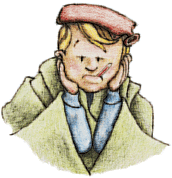

 |
 |
 Dr. Jenifer I. Bassett  |
What’s the Scoop on Over-the-Counter Cold and Flu Medicines?Doctors and nurses answer hundreds of questions during the winter months about the treatment of influenza, colds and other viral “bugs”. Unfortunately, there is as yet no cure for the common illnesses caused by these organisms. There are, however, hundreds of products marketed to provide relief of cold, flu and allergy symptoms. For sufferers of viral illness, and for parents looking to provide relief for their children’s symptoms, the huge variety of products can lead to confusion. Do the drugs really work? Which product is the one to buy? Here’s the straight dope on cold and flu medicines like…Tylenol, Theraflu, Contac, Nyquil, Motrin, Benadryl, Comtrex, Dayquil… the list goes on. The good news…virtually all of these medicines, and many similar products, contain the same set of ingredients, in different combinations. Each package, under active ingredients will list one or more of the following: Fever ReducersAcetaminophen is approved for people of all ages. Ibuprofen controls fever for longer periods than acetaminophen, but is not approved for babies under 6 months of age and should not be used in children who are dehydrated or vomiting continuously. Aspirin is not recommended for sick children.
Aspirin – not recommended for children with viral illnesses such as cold or flu because of the risk of Reye’s Syndrome, an uncommon but potentially fatal disease of the central nervous system (the brain) and liver. This is a disease of children 18 and under, and has been associated with the use of salicylates (aspirin products) in the setting of a viral infection. DecongestantsIntended to shrink swollen nasal passages and improve drainage. This is the “D” in products like Claritin-D. Side effects include nervousness, restlessness, decreased appetite, difficulty sleeping and heart rhythm abnormalities.
Decongestant nose drops like Oxymetolazone (Afrin, Dristan) and Phenylephrine (Neo-Synephrine) have fewer side effects, but can produce “rebound” nasal stuffiness if used for more than 3 days. Use of decongestant nose drops is not recommended in young children. The exception to this is saline drops, which are generally harmless. Cough SuppressantsThe most commonly used over-the-counter product in this category is dextromethorphan ( Benylin, Vicks and the “DM” in cold, allergy and flu products). It is similar in effectiveness to codeine, and while both work reasonably well in adults, neither is very effective in children. These medications limit the body’s ability to clear excess secretions and should not be used to suppress cough due to asthma or pneumonia. Coughing is the body’s way of protecting its airways! The American Academy of Pediatrics (AAP) does not recommend the use of cough suppressants in young children, even for viral infections. The AAP instead advises the use of fluids and humidified air, which help to thin secretions and make them easier to clear. Cough suppressants are sometimes helpful at night, if cough is preventing sleep. Side effects of dextromethorphan include irritability, restlessness, lethargy, hallucinations, high blood pressure and dystonia (abnormal muscle control). ExpectorantsDesigned to loosen secretions and make them easier to clear. Guaifenesin has no serious side effects except for occasional allergic reactions. AntihistaminesIntended to improve itching and watering of the eyes, and dry up runny noses. Traditional antihistamines such as Brompheniramine, Chlorpheniramine (Chlor-Trimeton), Diphenhydramine (Benadryl), Doxylamine succinate (Found in combination products and not generally dosed separately) tend to work well for allergic symptoms; less well for runny nose related to colds. They should not be used for “lower respiratory” (lung) symptoms such as pneumonia or asthma-related cough or wheezing. Because they dry out secretions, antihistamines can make phlegm thick and difficult to clear and for this reason, they are not recommended for sinus infections. Side effects include sleepiness, dry mouth, sore throat, blurred vision, nausea, vomiting, poor coordination, difficulty urinating, hallucinations, seizures and (rarely) death. Sleepiness is common in adults; children may develop excitation and hyperactivity instead. Newer antihistamines such as loratidine (Claritin) are less likely to cause sleepiness. For example, loratidine is found in Dayquil, and the more sedating doxylamine is used in Nyquil. Patches/SalvesThe following compounds: Camphor, Eucalyptus Oil and Menthol are found in Vicks Vaporub, Triaminic Vapor Patch and similar products. Side effects are unusual. Skin irritation can occur. Be careful when giving more than one cold or flu remedy at a time. Most of the products contain similar ingredients! It’s easy to give a double (or triple) dose of medicine by combining products. No medicine will cure colds or flu. Acetaminophen and Ibuprofen generally work well for fever control. Other products sold for symptom relief, however, tend to be less effective in young children, and the side effects may be unpredictable. Sometimes, the best “medicine” is rest, fluids and TLC.* For more information, call Dr. Bassett, Internal Medicine & Pediatrics at Southside Medical Clinic » 715.830.9990 *Tender Loving Care. |
|